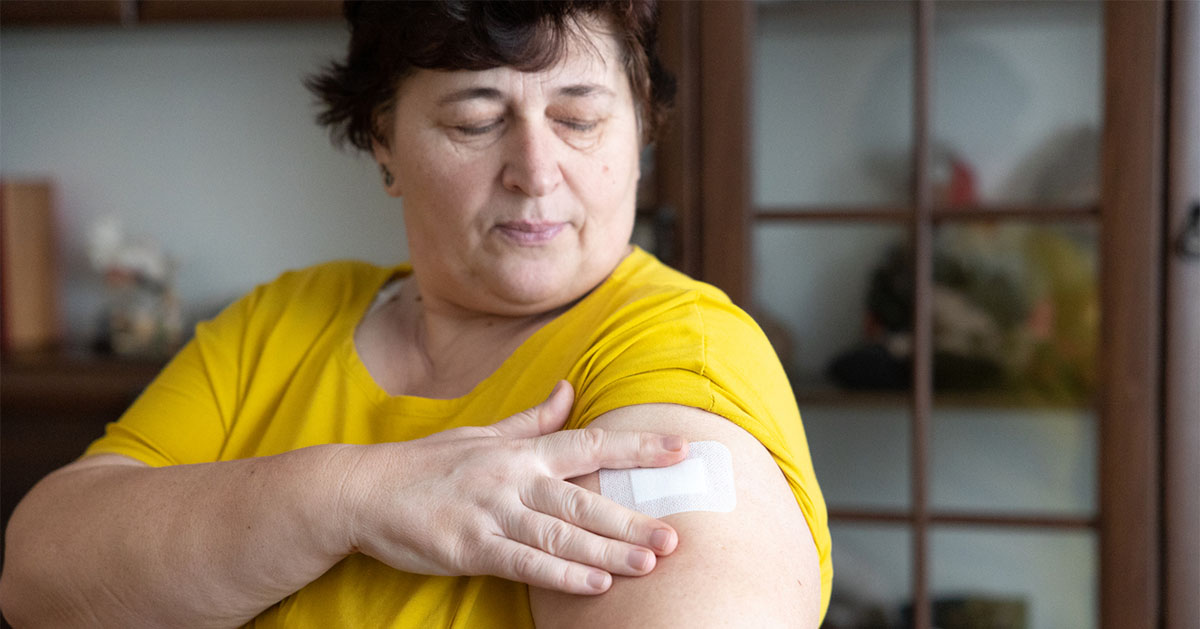In June 2012, the mental health team at KCA (a charity providing NHS psychological therapy services) received a grant from the South East Coast Strategic Health Authority, via the local primary care trust, to develop and pilot a new service for people with diabetes and a comorbid common mental health condition. This paper begins by outlining the research and policy context that presented the opportunity to develop a specialised psychology service for people with diabetes. We then describe the processes of developing the service and report on project outcomes.
Research and policy context
People with diabetes have a significantly increased risk of depression, anxiety and eating disorders compared to people without the condition, which can limit their ability to self-manage and increase the risk of serious complications (Royal College of Physicians, 2008; NICE, 2009; NHS Diabetes and Diabetes UK, 2010). Sub-threshold psychological problems (i.e. not meeting criteria for formal diagnosis) are even more common, and it is recognised that many or most people with diabetes experience difficulties coping with the condition and its implications (NHS Diabetes and Diabetes UK, 2010). While provision of psychological treatment and support has been found to reduce psychological distress and improve health-related outcomes in people with diabetes, research indicates that: around 30–50% of cases of depression in people with diabetes are missed in both primary and secondary care, and 85% of people with diabetes in the UK either have no defined access to psychological support and care or have access only to a generic mental health service (NHS Diabetes and Diabetes UK, 2010).
Improving Access to Psychological Therapies programme
The UK Government (Department of Health, 2012) has recently identified the national Improving Access to Psychological Therapies (IAPT) programme as a potential mechanism for addressing high levels of unmet psychological need among people with diabetes and other long-term conditions (LTCs). The IAPT programme supports NHS service providers in implementing NICE guidelines for people with depression and anxiety disorders (see the following website for more information: www.iapt.nhs.uk). Services are based on a “stepped-care” framework (see Figure 1): on referral, people with LTCs are offered an assessment of their psychological needs covering subjective wellbeing, problems and symptoms, life-functioning, and risk and harm. Treatments are then offered as appropriate to the level of severity of the individual’s mental health difficulties.
However, it is recognised that undertaking psychotherapeutic work with people with LTCs requires particular skills, and mental health workers will need specialist training and supervision to work effectively with these individuals. It will also be necessary to identify optimal care pathways for people with comorbid mental and physical health conditions and develop closer integration between mental health and primary care services (Naylor et al, 2012).
Development of the primary care Diabetes Psychology Service
Activities conducted by the KCA during the pilot period (1 June 2012 to 31 May 2013) to develop a specialised primary care diabetes psychology service within the framework of the national IAPT programme are described below. Project aims of the pilot programme are summarised in Box 1.
Developing a project team
The grant provided funding to employ a Health Psychologist (KHW) with expertise in development and evaluation of interventions to work alongside the KCA Director of Psychology (PK), Assistant Director of Mental Health (KS), and Data and Quality Manager (KG). This group formed the core project team.
Developing a project steering group
Information about the project was sent by post and e-mail to local GP practices and Diabetes UK support groups; clinicians, people with diabetes and their relatives were invited to join the project steering group. Two people accepted the invitation: a diabetes specialist nurse and the leader of a local Diabetes UK support group (see acknowledgements for further details). Others expressed interest but were unable to attend meetings. The team maintained contact with these individuals by e-mail and telephone to provide updates and seek feedback on methods and materials. Information was also circulated internally; a senior psychological wellbeing practitioner (PWP [AV]) and two volunteer researchers expressed interest and joined the steering group (see acknowledgements for further details).
Developing care pathways for people with diabetes and a comorbid common mental health condition
To develop care pathways that map onto the IAPT stepped-care model (see Figure 1), it was necessary to consider the following questions.
1. What additional assessments might be necessary to identify the psychological support needs of people with diabetes and a comorbid common mental health condition?
We aimed to identify a questionnaire with robust psychometric properties that could be used to assess areas of concern in relation to living with and managing diabetes. For the scale to be used in routine practice, it had to be brief and available without charge. The Problem Areas in Diabetes Scale (PAID; Polonsky et al, 1995) and Diabetes Distress Scale (DDS; Polonsky et al, 2005) were identified as meeting these criteria.
The DDS was selected on the basis that it is shorter than the PAID scale (17 versus 20 items respectively), and the project steering group felt that the questions were easier to understand. The DDS also has the advantage that it can be used as a screening measure; a brief two-item version has been developed (the DDS2; Fisher et al, 2008) to identify people scoring above or below a threshold for diabetes-specific distress (Fisher et al, 2012).
2. What diabetes-specific interventions could be offered at Step 2 and Step 3 of the stepped-care framework?
Step 2 and Step 3 of the stepped-care framework require different levels of interventions: Step 2 needs to offer low-intensity interventions for people with mild-to-moderate psychological distress and Step 3 needs to offer high-intensity interventions for people with moderate-to-severe distress. A wide range of psychological interventions has been developed for people with diabetes, although there is insufficient evidence to determine which is most effective (Keen, 2010).
Systematic reviews indicate that the majority of interventions have been influenced by cognitive behavioural therapy principles although they have not been homogeneous (Pouwer et al, 2001; Ismail et al, 2004). The focus of interventions also varies, with some targeting individuals’ capacity to develop effective self-care regimens (e.g. diabetes self-management education and interventions to increase self-efficacy and motivation) and others targeting psychological distress (Keen, 2010; NHS Diabetes and Diabetes UK, 2010).
Recent research indicates that educational, motivational and cognitive behavioural interventions can be usefully combined to help people manage their diabetes, including its emotional impacts. This approach – known as Concordance Therapy (CCT) – involves assessing individuals’ beliefs about diabetes and its management using the Brief Illness Perceptions Questionnaire (BIPQ; Broadbent et al, 2006). Cognitive behavioural interventions are then used to address beliefs preventing active self-management, while motivational interventions are used to support the person in developing self-care regimens that work for them over the long-term; diabetes self-management information is also provided as relevant to the individual’s needs (Hamilton-West et al, 2013).
In addition, recent reports highlight an increasing emphasis on mindfulness-based therapies for people with diabetes (NHS Confederation, 2012), with Acceptance and Commitment Therapy (ACT) emerging as a particularly useful approach (Gregg et al, 2007). ACT incorporates training in mindfulness and acceptance strategies (to improve management of negative thoughts, feelings and physical sensations) and a focus on working towards goals and values in the face of difficulties. This is important for people with LTCs since health problems can place constraints on daily living and interfere with valued goals.
The developed care pathways
The care pathways for people with diabetes and a comorbid common mental health condition developed by the team are illustrated in Figure 2 and described below.
On referral to the service, all people with diabetes are asked to complete the DDS2 as part of their assessment of psychological wellbeing; those scoring below the threshold for diabetes distress are referred to the standard IAPT (mental health) service while those above the threshold are given the choice to opt in to either the standard service or the diabetes psychology service (information about the two treatment pathways is provided to support patient decision- making).
People with diabetes opting into the diabetes psychology service are asked to complete the DDS17 and BIPQ before their first therapy session. This assessment guides the provision of diabetes self-management support at Step 2 (for people with mild-to-moderate distress) or Step 3 (for people with moderate-to-severe distress). Educational, cognitive behavioural and motivational interventions are offered, consistent with the CCT approach.
In addition, people at Step 3 can be offered ACT to support management of negative emotions and illness symptoms, and to maintain engagement with valued activities.
Training PWPs
PWPs provide care for individuals at Step 2 of the stepped-care model. The training for the developed diabetes psychology service included attending a 3-hour “diabetes psychology training workshop” covering: diabetes and its management; psychological implications of living with and managing diabetes; and the role of psychological therapies in improving psychological and physical health outcomes. The workshop provided an opportunity to discuss case studies and practice using assessment measures. PWPs were provided with educational materials and information about external sources of support (including NHS diabetes services and patient support groups). The trainer (KHW) provided ongoing support after the workshop (e.g. case discussion and signposting to materials and resources) and PWPs were encouraged to access the online training programme (described below) to refresh their knowledge.
Developing an online training programme
An online training programme was developed to increase awareness of the psychological implications of living with and managing diabetes. The content mapped on to the themes covered in PWP training, but with a different target audience in mind (healthcare professionals without a psychology and therapy background). Materials were written in plain English, avoiding technical terminology, so they could also be accessed by people with diabetes and their carers. The project steering group advised on suitability of materials for different audiences and a professional web development team created a fully functioning online training resource.
Implementation and dissemination
Once the development work was completed, the team contacted local primary care clinicians to invite referrals. Members of the project steering group also played an important role in raising awareness of the service among people with diabetes and colleagues. In addition, the team contacted local Diabetes UK groups and attended support meetings to discuss the service. Implementation occurred gradually as referring clinicians became more aware of the service and local teams started to embed the project methods into their operating procedures.
Data analysis and monitoring
Data were collected to evaluate the diabetes psychology training, monitor activity across the pilot sites and estimate improvement and recovery rates for people accessing the service. The team maintained regular communication with staff members involved in developing and delivering the diabetes psychology service (including administrators, managers and practitioners) to identify and address factors influencing implementation. Evaluation data and staff feedback were discussed to draw out the “lessons learned”.
Results – project outcomes
Evaluation of the diabetes psychology training workshop
PWPs (n=33) completed a 13-item questionnaire at the start and end of the training workshop to assess their knowledge of diabetes (e.g. “I understand the difference between type 1 and type 2 diabetes”) and their knowledge of assessment and treatment methods (e.g. “I understand how to identify factors influencing the individual with diabetes’ motivation to self-manage”). Responses were scored 0 for “no” or 1 for “yes” (Cronbach’s alpha=0.78). Total scores increased from a mean of 4.94 (standard deviation [SD]=2.55) before the workshop to a mean of 12.24 (SD=1.56) after the workshop. A paired-samples t-test indicated that this difference was statistically significant (P<0.0001).
The questionnaire also included five open-ended questions to find out more about PWPs’ perceptions of the workshop (e.g. “What is the most valuable thing you learned today?”). PWPs reported that they had gained an understanding of the psychological implications of living with diabetes (e.g. how much a person with diabetes has to manage and how overwhelmed they must feel) along with knowledge of assessment (assessment skills to work out what are diabetes symptoms and what could be anxiety and depression) and treatment (e.g. where to get information about diabetes for patients and how to help people with self-management). They also reported that the workshop as a whole had been useful (e.g. “It was a really useful workshop and I feel we could benefit from similar training in other health conditions”).
Activity and patient outcomes
During the pilot period, 17 people were identified as meeting the inclusion criteria (diagnosed with type 2 diabetes, scoring above the threshold for diabetes distress and suitable for treatment at Step 2 or Step 3). Of these, 11 opted in to the diabetes psychology service; three received low-intensity (Step 2) treatments and eight received high-intensity (Step 3) treatments. By the end of the pilot period, eight individuals had completed treatment: three at Step 2 and five at Step 3. The remaining three individuals were still in treatment at the end of the pilot study. Mean depression and anxiety scores at assessment and end of therapy for the eight participants who completed treatment during the pilot study are shown in Table 1.
To determine the clinical significance of change in depression and anxiety scores, we calculated the number of participants scoring above the threshold to be defined as a “case” (“above caseness”) at assessment (Patient Health Questionnaire [PHQ9; Kroenke et al, 2001] score >10 or Generalised Anxiety Disorder [GAD7; Spitzer et al, 2006] score >8). We also calculated the number of individuals showing “reliable improvement” (a reduction of at least five points on the PHQ9 or four points on the GAD7) and the number showing “movement to recovery” (a move from above caseness to below caseness on either the PHQ9 or GAD7) – see IAPT (2011). Seven participants scored above the threshold to be defined as a case at assessment – of these, three (43%) had moved to recovery at the end of therapy. Five of the eight participants (63%) treated showed evidence of reliable improvement. While numbers are too small to form definitive conclusions, rates are broadly similar to national IAPT data (Department of Health, 2012).
Lessons learned
Table 2 provides a summary of the lessons learned following staff feedback and activity data, together with actions taken by the project team.
Summary and future directions
Many people with diabetes require psychological support in relation to living with and managing diabetes, although there are few services designed to meet this need. We aimed to help address this gap at a local level, by building on an existing NHS primary care mental health service. Care pathways for people with diabetes were developed on the basis of research evidence, with input from patients, clinicians and service managers. Mental health workers (PWPs) received specialist training and support to enable them to work effectively with people with diabetes. We also established links with local primary care teams and developed training to increase awareness of the psychological implications of living with diabetes (available at http://diabetes.kca.org.uk).
Findings of the pilot project are encouraging. PWP training resulted in greater understanding of the challenges faced by people with diabetes in relation to living with and managing their condition on a day-to-day basis, as well as greater understanding of diabetes-specific assessment and treatment methods. People accessing the pilot service showed improvements in depression and anxiety following therapy and for the majority this improvement was clinically significant. Participants also reported benefits beyond those captured by routine outcome data, including changes in diabetes self-management regimens (although this was not formally assessed). Moreover, the project provided a valuable learning experience in terms of considering the processes and procedures necessary to deliver diabetes-specific assessments and treatments within an IAPT service. Some of these issues (e.g. the suitability of standard IAPT outcome measures) will require further consideration as the national IAPT programme is extended to people with LTCs.
Since the end of the pilot period, the diabetes psychology service has been adopted across the five sites in Kent as part of routine service provision. This means that we are now able to plan a larger scale evaluation project and apply for research funding to test whether the magnitude of difference seen in the pilot study can be reproduced and to examine patient outcomes in greater detail (including both quantitative and qualitative outcomes). We are also considering additional interventions to be offered within the service, including psycho-education workshops (see Hawkes et al, 2012). We recognise that, in the constantly changing NHS context, it is important to develop services with the capacity to adapt.
As the service develops, we will continue to look to research to inform the development of evidence-based assessments and treatments. We will also continue to invite feedback from service users and clinicians to ensure that services remain responsive to the needs of people with diabetes.
Acknowledgements
The authors would like to express their gratitude to the following people for their invaluable contribution to this project: Sarah Beadle (volunteer researcher), Jackie Brown (diabetes specialist nurse, NHS Ashford CCG), Hayley Eversfield (Marketing Communications Manager, KCA) and Darren Osborne (volunteer, Diabetes UK support group leader).





It is crucial that we review retinal screening reports prior to prescribing GLP-1 or GIP/GLP-1 receptor agonists.
6 Aug 2025